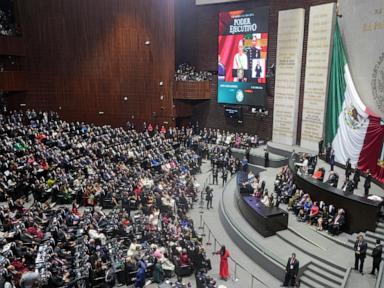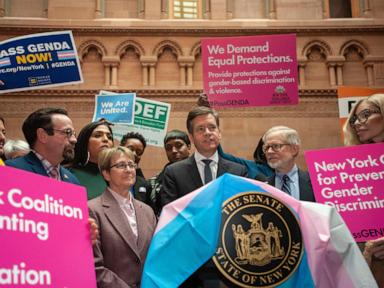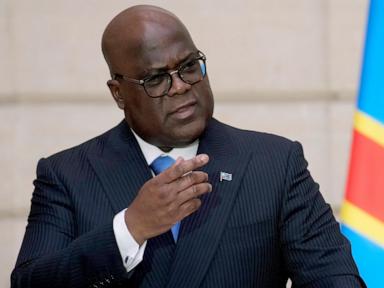How Trump has changed and will change the Constitution

One hallmark of Donald Trump’s public service has been a penchant for stress-testing the limits of the law and the Constitution. Much of what Trump did during his first term prompted the ubiquitous question, “Can he do that?”
But that has always been the wrong question. The correct question is, “If he does that, are there any consequences?”
If the answer to the second question is “no,” then the answer to the first question is “yes” — regardless of what the Constitution and the law actually say. We saw this happen on many fronts during Trump’s first term. After four more years of Trump, the nation’s charter will fundamentally morph again — and it won’t be for the better.
Consider what has changed since Trump took office in 2017. Back then, there remained a reasonable expectation that the Constitution’s impeachment clause would operate as a serious check on the presidency, notwithstanding the failed attempt to impeach President Bill Clinton on charges that he lied under oath to a federal grand jury and obstructed justice regarding his sexual misconduct with Monica Lewinsky.
Trump survived two impeachments, the first of which arose from his attempt to persuade Ukrainian President Volodymyr Zelensky to publicly announce investigations into former Vice President Joe Biden, then his main political rival, on penalty of losing $391 million of appropriated funding to Ukraine if Zelensky did not do so. The second impeachment charged Trump with inciting an insurrection at the Capitol on Jan. 6, 2021.
In both cases, Trump tried to illegally influence a presidential election. Senate Republicans refused to convict in either — effectively deactivating the impeachment clause as a meaningful constraint on serious abuses of presidential power.
The Senate’s failure to convict also sent a message that the underlying actions did not amount to anything that bothers the Constitution. So it now doesn’t matter if presidents refuse to spend congressionally appropriated funding as part of what some called an “extortion campaign” against a foreign ally. Congressional Republicans made clear that they didn’t care.
Worse, Republican senators effectively endorsed Trump’s actions before and on Jan. 6 that led to chaos, terror and bloodshed in the riot at the U.S. Capitol. Trump received a federal criminal indictment for the same actions, which Special Counsel Jack Smith just withdrew under Justice Department guidance that sitting presidents cannot be prosecuted.
That case also prompted the right wing of the Supreme Court to manufacture a principle of criminal immunity for presidents who commit crimes using their official powers — including their commander-in-chief, prosecutorial and law-enforcement powers. The implications of Trump v. U.S. will only become clear if a president decides to use this newfound power to commit crimes even more serious than the ones Trump allegedly committed the first time he was president.
But without Trump, there would be no such thing as criminal immunity for presidents.
Consider as well Trump’s use of his business entities to secure questionable payment streams from the Secret Service, federal and state officials, presidential pardon recipients, people seeking federal jobs and foreign interests during his first term — a scheme that House Democrats condemned as “unconstitutional domestic emoluments” that “fleec[ed] the taxpayers.” Nothing occurred in Congress or the courts to stop him, so presidential pay-to-play schemes are now grafted onto the Constitution as generally acceptable, even if simultaneously illegal or unconstitutional.
The list of constitutional and legal transgressions that Trump made acceptable during his first term goes on — and there’s even more in store for Trump 2.0.
Already, Trump has floated the notion of bypassing the Constitution’s requirement that the Senate give advice and consent for high-level executive branch nominees, as well as the FBI background checks that traditionally go along with it. If both houses of the Republican-led Congress cave to Trump’s demands and abdicate their constitutional oversight role by allowing a long-enough recess to enable those appointments, that will become the norm moving forward. We might as well take a proverbial black Sharpie and cross out the advice-and-consent language from Article II of the Constitution, aggrandizing presidents’ power further for generations to come.
Trump has also announced an intention to create a “Department of Government Efficiency” (DOGE) run by Elon Musk and Vivek Ramaswamy — who are unelected and would carry serious financial conflicts-of-interest, with criminal implications, if they are placed in charge of a government body as private citizens. The fact that Trump is suggesting that he can create new agencies on his own is itself dumbfounding, as only Congress has that power. Presidents can create advisory boards, but those are bound by federal oversight laws.
Trump reportedly plans for DOGE to somehow operate outside of the federal government to “drive large scale structural reform, and create an entrepreneurial approach to Government never seen before.” Unpacking the legal flaws with this notion is nuanced and complex, so much so that the widespread acceptance that this is Trump’s plan could eclipse whatever guardrails that remain to stop it, especially if Congress does not push back.
Musk and Ramaswamy have also announced a plan to have Trump slash regulations by executive order. Their idea is based on a legally incorrect premise that the Supreme Court declared vast swaths of federal regulations illegal in Loper Bright v. Raimondo last term. It did not — rather, it held that courts can more readily second-guess agencies' actions rather than deferring by default to their expertise, as had been the precedent for decades.
But if Trump were to issue such an executive order on the theory that he has discretion to refuse to enforce "unlawful" regulations, who would stop him? The Supreme Court could ultimately be asked to step in — or Congress could pass a law overriding his action. The question after Trump’s first term is whether those co-equal branches will finally muster the nerve when they didn’t do so during Trump’s first term.
The list of constitutional limits that could go out the window this time, particularly with a pliant Supreme Court majority at the top of the judicial hierarchy, is sobering. It’s also nearly impossible to anticipate or even plan for, let alone outmaneuver.
Trump has long made clear that he doesn’t care about the Constitution, which means he will continue to devise ways to weaken it that the rest of us wouldn’t even dare to contemplate.
Kimberly Wehle is author of the new book “Pardon Power: How the Pardon System Works — and Why.”
-

How Trump 2.0 will change American foreign policy
Politics - The Hill - November 12 -
How JJ Redick has changed the Lakers -- with the same roster
Sports - ESPN - November 13 -

Mexico Passes Bill Barring Legal Challenges to Constitutional Changes
World - The New York Times - October 31 -

What to know about changes to Mexico's Constitution that prohibit court challenges to amendments
World - ABC News - November 1 -

New Yorkers may change their constitution to ban discrimination over ‘pregnancy outcomes’
Health - ABC News - November 5 -

Congo opposition leaders call for protests against president's plan to change constitution
World - ABC News - November 20 -
Netanyahu Wanted Trump Back. But the Middle East Has Changed Since 2016.
World - The Wall Street Journal - November 7 -

Trump's Energy Department pick has history of downplaying climate change impacts
Politics - The Hill - November 18 -
America’s foreign policy has changed — and must remain changed
World - Financial Times - October 29
More from The Hill
-

How a Democrat's postelection chat with a Trump supporter provided invaluable insights
Politics - The Hill - 45 minutes ago -

Judge tosses Jan. 6 protester Ray Epps's lawsuit against Fox News
Politics - The Hill - 52 minutes ago -

$18M in fake Gibson guitars seized in California
Politics - The Hill - 54 minutes ago -

Jack Smith must release a final report on Trump
Politics - The Hill - 1 hour ago -

Trump taps Keith Kellogg as special envoy to Ukraine and Russia
Politics - The Hill - 1 hour ago